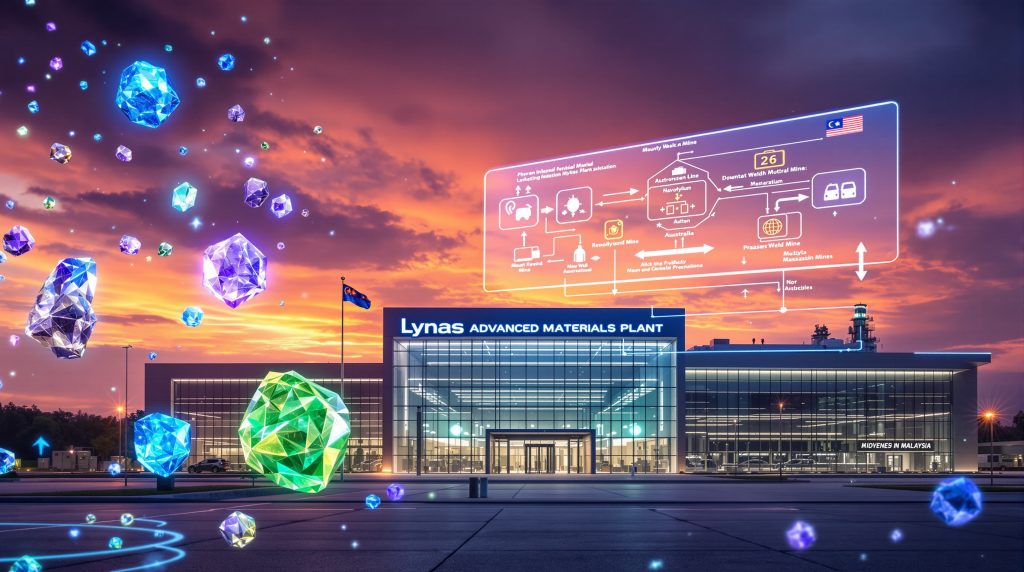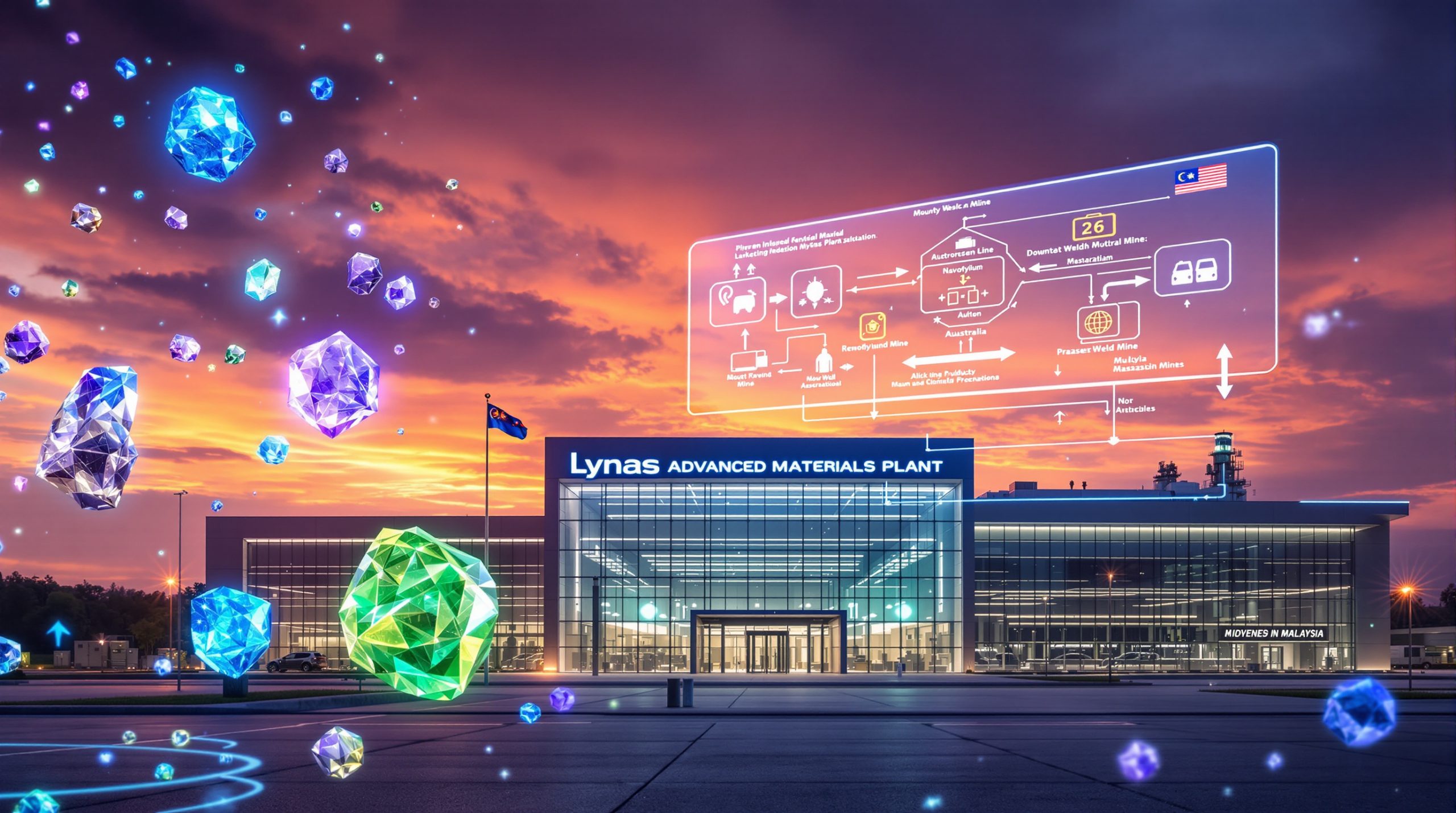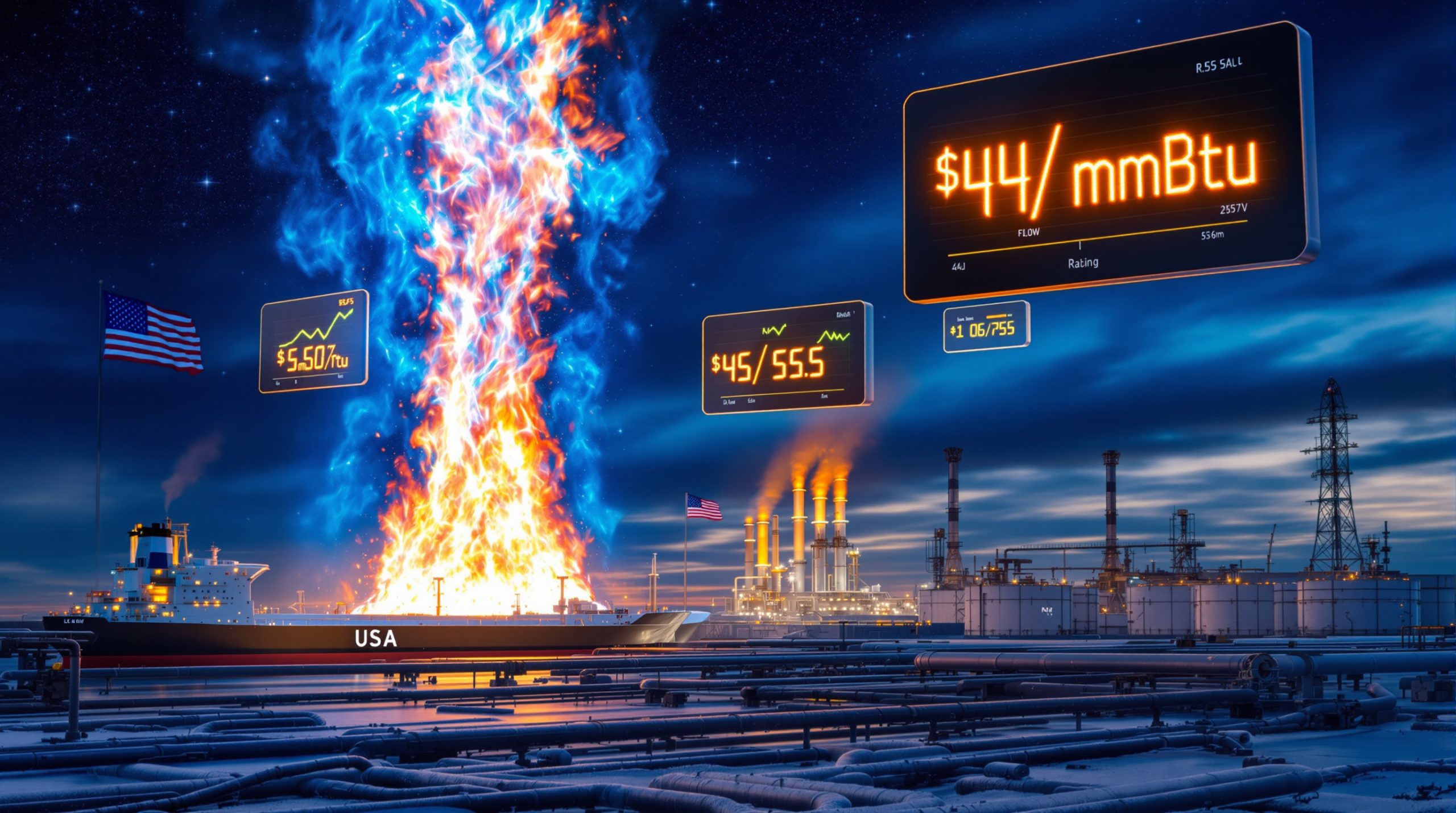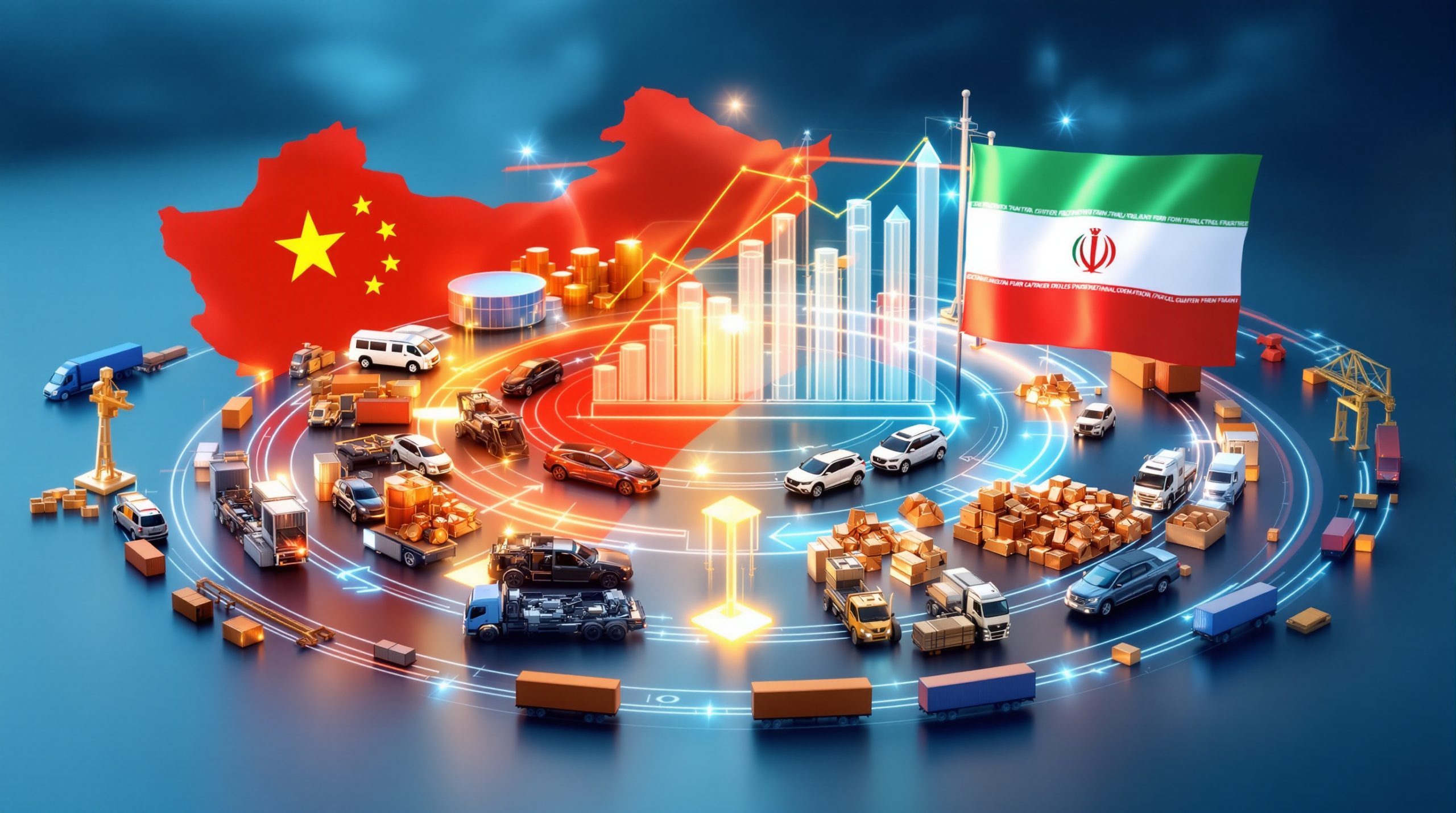Lynas Rare Earths Processing in Malaysia: Strategic Operations and Global Impact
What is Lynas's Role in the Global Rare Earths Market?
Lynas Rare Earths holds a pivotal position as the largest producer of rare earth materials outside China, with its Malaysian processing facility serving as a cornerstone in global supply chains. The company addresses mounting concerns about overdependence on Chinese production, offering Western nations and their allies an alternative source for these critical minerals energy transition that power modern technology and defense systems.
The company's Mount Weld deposit in Western Australia provides a significant competitive advantage with its exceptionally high ore grade of 14.8%, substantially outperforming the approximately 8% grades found in major Chinese deposits. This natural advantage translates directly into improved processing efficiencies and higher-quality end products.
In 2024, Lynas reported a substantial resource upgrade, increasing mineral resources by 92% and ore reserves by 63%, reinforcing its long-term operational viability. These expanded resources support a mine life exceeding 35 years at its current production rate of 7,200 tonnes per annum of NdPr oxide.
The Strategic Importance of Rare Earths Processing
Rare earth elements, despite their misleading name, occur relatively frequently in the Earth's crust but rarely concentrate in economically viable deposits. Processing these elements presents considerable technical hurdles that require specialized facilities and expertise. These minerals serve as crucial components in technologies spanning from smartphones and wind turbines to electric vehicles and precision-guided weapons systems.
The strategic importance of rare earths has intensified in recent years due to their irreplaceable role in clean energy technologies and defense applications. Nations worldwide recognize that securing reliable access to these materials represents a matter of national security, particularly as US-China trade war impact continues to reshape global supply chains.
Lynas's Market Position in 2025
As of 2025, Lynas has firmly established itself as a key player in the rare earths market with:
- World's largest rare earth processing capacity outside China
- Vertically integrated operations from mining through to finished products
- Strategic relationships with governments concerned about supply chain security
- Growing production capacity to meet increasing global demand
The company's unique position as a non-Chinese supplier of scale has attracted significant investor interest, reflected in its share price appreciation of 160% in 2025 alone, despite challenges in its annual profit figures.
How Does the Lynas Advanced Materials Plant in Malaysia Operate?
The Lynas Advanced Materials Plant (LAMP) in Kuantan, Malaysia represents the cornerstone of the company's processing capabilities and serves as the world's largest rare earth extraction facility outside China. Following major upgrades completed after a six-week shutdown in late 2023, the facility now offers enhanced production capacity and capabilities.
Location and Facility Overview
The LAMP facility is strategically positioned in the Gebeng Industrial Estate near Kuantan, occupying approximately 100 hectares within a designated petrochemical zone. This location provides:
- Access to port facilities for efficient export operations
- Necessary infrastructure for chemical processing requirements
- Proximity to Asian manufacturing hubs
- Regulatory framework for processing operations
The facility's location along Malaysia's east coast enables efficient shipping connections to manufacturing customers throughout Asia while maintaining access to global markets.
Processing Technology and Capabilities
The Malaysian facility employs sophisticated processing techniques to transform raw materials into high-value rare earth products:
| Processing Stage | Technology/Process | Output |
|---|---|---|
| Initial Processing | Cracking with sulfuric acid | Rare earth sulfate |
| Separation | Solvent extraction using counter-current technology | Individual rare earth elements |
| Product Finishing | Precipitation and calcination | High-purity rare earth oxides |
| Heavy Rare Earths | Advanced separation circuits | Dysprosium and terbium oxides |
Following its recent upgrades, the facility now achieves production capacity of approximately 10,500 tonnes per annum for NdPr family elements, representing a significant increase from previous capabilities.
Recent Technological Advancements
In 2025, Lynas achieved a significant milestone by becoming the first commercial producer of separated heavy rare earth elements outside China. This breakthrough includes:
- Production of dysprosium oxide beginning in 2025
- Plans to add terbium production shortly thereafter
- Implementation of reconfigured solvent extraction circuits
- Enhanced capabilities for producing higher-value products
This capability represents a significant strategic achievement given global concerns about overreliance on China for heavy rare earth separation. Heavy rare earths like dysprosium and terbium command substantially higher prices than light rare earths and are critical for high-performance permanent magnets used in electric vehicles and wind turbines.
What Challenges Has Lynas Faced with Malaysian Processing?
Despite its strategic importance, Lynas's Malaysian operations have encountered several significant challenges over the years, particularly regarding environmental concerns and regulatory hurdles that have required careful navigation and substantial investment to address.
Environmental and Regulatory Issues
The processing of rare earths generates waste material containing naturally occurring radioactive materials (NORM), primarily thorium and uranium. This has led to:
- Ongoing public concerns about waste management practices
- Regulatory scrutiny from Malaysian authorities
- License conditions requiring waste management solutions
- Need for continuous environmental monitoring and reporting
Local community groups and environmental organizations have raised concerns about potential environmental impacts, particularly regarding the management of slightly radioactive waste materials produced during processing.
Waste Management Solutions
To address these challenges, Lynas has implemented comprehensive waste management strategies:
- Development of secure storage facilities for residues
- Research into methods to repurpose waste materials
- Commitment to permanent disposal solutions
- Regular environmental impact assessments and monitoring
The company has invested significantly in research to find commercial applications for its process residues, including potential use in soil amendments and construction materials, aiming to transform waste streams into valuable by-products.
Regulatory Compliance and License Renewal
Lynas's operating license in Malaysia has undergone several reviews and modifications since operations began:
- Initial temporary operating license granted in 2012
- Full operating license awarded in 2014
- License renewal in 2020 with additional conditions
- Ongoing compliance with evolving regulatory requirements
Each license renewal has typically included stricter environmental conditions, reflecting both growing regulatory expectations and Lynas's commitment to continuous improvement in its environmental performance.
How Does Lynas Source Materials for Malaysian Processing?
The primary source of raw materials for Lynas's Malaysian processing facility comes from the company's Mount Weld mine in Western Australia, one of the world's highest-grade rare earth deposits. This integrated supply chain provides Lynas with greater control over quality and security of supply.
Mount Weld Operations
Mount Weld provides several advantages as a supply source:
- Exceptionally high ore grade (14.8% compared to ~8% in major Chinese deposits)
- Significant reserves supporting 35+ years of production
- Recent resource upgrade increasing mineral resources by 92%
- Concentration plant located near the mine site
The Mount Weld deposit contains predominantly light rare earths, with neodymium and praseodymium being the most economically significant elements present. The deposit's high grade significantly reduces the volume of material that must be processed to extract the valuable rare earth elements.
Supply Chain Integration
Lynas has established a sophisticated supply chain connecting its Australian mining operations with Malaysian processing:
- Extraction of rare earth ore at Mount Weld
- Initial concentration at the Mount Weld concentration plant
- Shipment of concentrate to Malaysia
- Processing at LAMP to produce final products
- Distribution to customers globally
This integrated approach allows Lynas to maintain quality control throughout the production process while optimizing logistics and processing costs. The company began shipping Mixed Rare Earth Carbonate (MREC) from its new Kalgoorlie facility to Malaysia in the second quarter of 2024.
Diversification of Supply Sources
To enhance supply security, Lynas is pursuing additional sources:
- Exploration of potential partnerships with Brazilian rare earth deposits
- Memorandum of understanding with Malaysia's Kelantan government to explore local ionic clay deposits
- Assessment of other potential supply sources globally
This diversification strategy aims to reduce reliance on a single source while expanding the company's resource base and product portfolio, particularly for heavy rare earth elements that are less abundant at Mount Weld.
What Is Lynas's Strategy for Processing Expansion?
Lynas has implemented a multi-faceted growth strategy to expand its processing capabilities both within Malaysia and globally, positioning the company to meet rising demand while enhancing supply chain security for customers worldwide.
Malaysian Processing Enhancements
Recent upgrades to the Malaysian facility have significantly boosted capabilities:
- Six-week shutdown in late 2023 for major upgrades
- Increased production capacity to approximately 10,500 tonnes per annum for NdPr family elements
- Addition of heavy rare earth separation capabilities
- Enhanced efficiency and product quality through process improvements
These enhancements allow the Malaysian facility to process more material while producing higher-value products, including heavy rare earth elements that command premium prices in the market.
Kalgoorlie Processing Facility Development
A key component of Lynas's expansion is the new processing facility in Kalgoorlie, Western Australia:
- Construction began in 2020
- Started producing Mixed Rare Earth Carbonate (MREC) in mid-2024
- First shipment of MREC sent to Malaysia in Q2 2024
- Designed to handle initial processing closer to the mine site
The Kalgoorlie facility represents a strategic response to Malaysian regulatory requirements to relocate cracking and leaching processes outside Malaysia. This facility also enhances supply chain resilience by distributing processing capabilities across multiple locations.
United States Expansion
Lynas is also establishing a foothold in the American market:
- Construction of a new separation facility in Texas
- Development in partnership with the US Department of Defense
- Expected operational date by June 2026
- Designed to serve both defense and commercial customers
This expansion into the US market aligns with growing concern in the United States about overreliance on Chinese rare earth supplies for defense and critical technologies. The Texas facility will particularly focus on heavy rare earth separation, addressing a critical gap in US supply chains.
What Are the Financial Implications of Lynas's Malaysian Operations?
The Malaysian processing facility represents a significant portion of Lynas's overall business operations and financial performance, though recent results have shown volatility amid changing market conditions and operational transitions.
Recent Financial Performance
Lynas's financial results have shown volatility in recent years:
- FY2025 profit of $8 million (down from $84.5 million in FY2024)
- Revenue expected to double from $556.5 million to $1.14 billion in FY2026
- EBITDA projected to grow from $101.2 million to $519.4 million in FY2026
- Further growth anticipated to $1.6 billion revenue and $863.6 million EBITDA in FY2027
The significant drop in profit for FY2025 reflects operational disruptions during facility upgrades, alongside market fluctuations, but forward projections indicate strong recovery as expanded capacity comes online.
Capital Investment
The company has made substantial investments to support its growth strategy:
- $750 million capital raise in 2025
- Ongoing investment in Kalgoorlie facility
- Development funding for Texas separation plant
- Continued upgrades to Malaysian operations
These investments position Lynas for long-term growth but have temporarily impacted profitability as the company expands and optimizes its operations across multiple jurisdictions.
Market Valuation
Despite fluctuations in financial performance, market sentiment toward Lynas has been positive:
- Share price increased 160% in 2025
- Analyst consensus price target of A$13.12 (with estimates ranging from $8.90 to $18.90)
- Forward multiples of 32.6x EV/EBITDA and 46x P/E for FY2026
- PEG ratio of 0.16x reflecting expected earnings recovery
This strong market performance indicates investor confidence in Lynas's strategic position and growth potential, despite short-term earnings volatility during its expansion phase.
How Does Lynas's Malaysian Processing Impact Global Rare Earths Supply?
Lynas's Malaysian operations play a crucial role in diversifying global rare earths supply chains beyond Chinese dominance, providing an alternative source for these critical materials in an increasingly competitive market.
Strategic Significance
The Malaysian facility contributes to global supply security through:
- Providing approximately 10% of global rare earths production
- Offering a non-Chinese supply option for critical materials
- Supporting allied nations' strategic mineral requirements
- Demonstrating commercial viability of rare earth processing outside China
As concerns about supply chain security have intensified, particularly for defense and clean energy applications, Lynas's role as a reliable non-Chinese supplier has gained strategic importance for Western nations and their allies.
Customer Base and Markets
Products from the Malaysian facility serve diverse global markets:
- Manufacturing customers in Japan, South Korea, and other East Asian nations
- Technology companies in Europe and North America
- Defense contractors in allied nations
- Growing electric vehicle and renewable energy sectors
The company has established long-term relationships with key customers, providing supply security for manufacturers who require reliable access to high-quality rare earth materials for their products.
Future Supply Chain Implications
Looking ahead, Lynas's Malaysian operations will continue to evolve:
- Increasing focus on higher-value separated rare earth products
- Growing capacity to meet rising demand from clean energy transition
- Enhanced capabilities for heavy rare earth separation
- Potential integration with new supply sources
As global competition for rare earth supply intensifies, particularly for heavy rare earths and magnet materials, Lynas's expanded capabilities position the company to capture growing market share in high-value segments.
What Are the Future Prospects for Lynas's Malaysian Operations?
The outlook for Lynas's Malaysian processing facility involves both opportunities and challenges in the evolving rare earths landscape, with several factors likely to influence its long-term success.
Growth Opportunities
Several factors support positive growth prospects:
- Increasing demand for rare earths in clean energy technologies
- Growing concerns about supply chain security driving Western support
- Technological advances enabling more efficient processing
- Potential for higher-margin products through advanced separation
The clean energy transition represents a particularly significant growth driver, with electric vehicles and wind turbines requiring substantial quantities of rare earth permanent magnets. Industry forecasts suggest demand for rare earth magnets could triple by 2035, creating substantial market opportunities.
Potential Challenges
The company also faces several ongoing challenges:
- Continued regulatory scrutiny in Malaysia
- Competition from emerging rare earth processors
- Price volatility in rare earth markets
- Geopolitical factors affecting global trade
Regulatory compliance in Malaysia remains a key focus area, with ongoing requirements to address waste management and environmental concerns. Meanwhile, emerging competitors in Australia, USA, and Europe seek to establish alternative rare earth processing capabilities.
Strategic Initiatives
To address these factors, Lynas is pursuing several strategic initiatives:
- Advocating for government support to build a sulfuric acid plant in Western Australia
- Exploring potential mergers and acquisitions in the rare earths sector
- Continuing to diversify product offerings and customer base
- Enhancing vertical integration across the supply chain
The company has indicated interest in expanding through potential partnerships or acquisitions, particularly to access heavy rare earth resources that complement its existing operations. CEO Amanda Lacaze has specifically mentioned Brazil as a region of interest for potential partnerships. Additionally, Lynas continues to focus on mining industry evolution and mine reclamation innovation to ensure sustainable operations.
FAQ: Lynas Rare Earths Processing in Malaysia
Why did Lynas choose Malaysia for its processing operations?
Malaysia offered several advantages for rare earth processing, including established industrial infrastructure, access to skilled labor, proximity to Asian markets, favorable operating costs, and port access for global distribution. The Gebeng Industrial Estate near Kuantan provided a suitable location within an established petrochemical zone with appropriate zoning and infrastructure for chemical processing operations.
What rare earth products does Lynas produce in Malaysia?
The Malaysian facility produces a range of rare earth products, primarily focusing on neodymium and praseodymium (NdPr) oxides, which are essential for permanent magnets used in electric vehicles and wind turbines. As of 2025, the facility has expanded to produce dysprosium oxide and plans to add terbium production, both critical heavy rare earths used in high-performance magnets for applications requiring exceptional temperature resistance.
How does Lynas manage radioactive waste from its Malaysian operations?
Lynas implements comprehensive waste management strategies, including secure storage facilities for residues, continuous monitoring, and research into methods to repurpose waste materials. The company has worked with Malaysian authorities to develop acceptable permanent disposal solutions and conducts regular environmental impact assessments to ensure compliance with regulations and community safety standards.
What is the relationship between Lynas's Australian and Malaysian operations?
Mount Weld in Australia provides the primary raw material (rare earth concentrate) that is shipped to Malaysia for processing. With the development of the Kalgoorlie facility, the initial cracking and leaching steps will occur in Australia, producing a mixed rare earth carbonate that will then be sent to Malaysia for separation into individual rare earth products, creating a more resilient and compliant supply chain.
How does Lynas's Malaysian operation compare to Chinese rare earth processing?
While Chinese facilities collectively process approximately 85% of global rare earths, Lynas's Malaysian plant is the largest single rare earth processing facility outside China. The Malaysian operation generally adheres to stricter environmental standards than many Chinese facilities and focuses on sustainable processing practices while producing similar high-quality rare earth products for global markets. Furthermore, Lynas's operations are increasingly important as Europe's CRM facility insights show growing demand for diversified supply chains.
Further Exploration:
Readers interested in learning more about rare earth processing and strategic minerals can explore related educational content from Stocks Down Under, which offers perspectives on rare earth investments and market trends in the context of growing global demand for these critical materials.
Seeking to Capitalise on the Next Major Mineral Discovery?
Discovery Alert's proprietary Discovery IQ model provides instant notifications on significant ASX mineral discoveries, turning complex geological data into actionable investment opportunities. Explore how historic discoveries like those referenced in Lynas's success story can generate substantial returns by visiting Discovery Alert's dedicated discoveries page and begin your 30-day free trial today.




